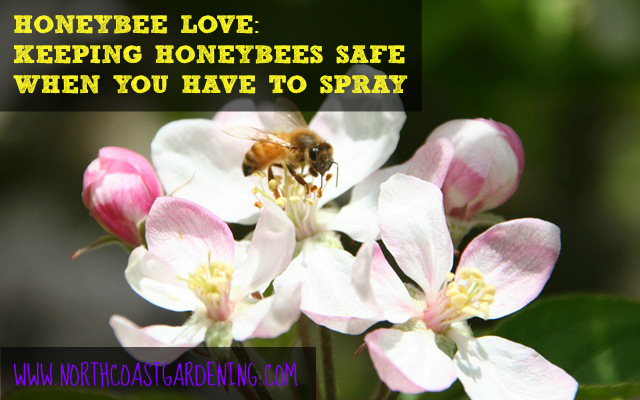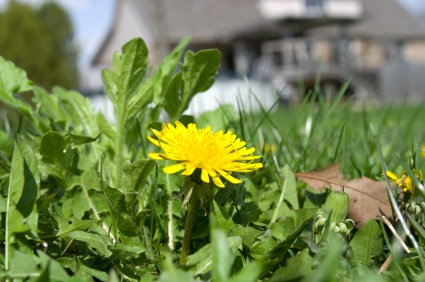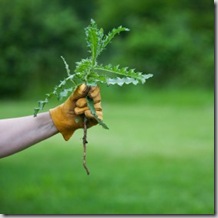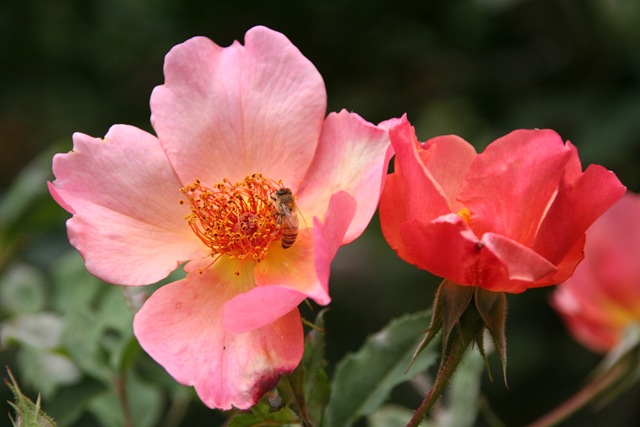-
The Evolution of a Gardener: Finding the Middle Ground Between Neat and Natural
Debbie’s post over at Garden of Possibilities was a catalyst for me to really think over an issue I’ve been having a lot lately – the Neat VS Natural debate. It’s not a debate I’ve been having with anyone else, it’s more been an internal struggle. You see, the more I learn about gardening, the…
-
Honeybee Love: Keeping Honeybees Safe While Using Pesticides

We’ve all heard about the plight of the honeybees by now – pesticides, hive infections, and other causes are combining to make it a very hard time to be a honeybee. If you’re thinking to yourself that it’s not the worst thing in the world to have one less type of stinging insect around –…
-
Vinegar Weed Control that Actually Works

When I was in horticulture school, the old-skool dudes teaching pest control were all about the chemicals – they just didn’t believe organics could be as effective as the lethal stuff. Yet every so often, a hint of doubt would creep into their voices about safety. I’d hear, “well, this one’s actually pretty bad” or …
-
How to Kill Dandelions in Lawn Organically

I just got a nifty tip on how to kill dandelions organically when they are growing in your lawn or in the center of another plant: injection with vinegar-based organic weed killer. You may have found that if you spray non-selective herbicide, organic or otherwise, on your dandelion that you end up with a dead…
-
Organic Gardening 101: Learning to Love What You’ve Got (How to Stop Spraying and Start Seeing Beauty Everywhere)
We’ve been talking about how to prevent pests on roses and flowers, and how to treat them organically if you do end up with problems. Today I want to talk about one of the biggest things that keeps us from gardening organically – our expectations and attachments to a specific kind of garden or plant.…
-
Disease-Resistant Roses for the Pacific Northwest

As a professional gardener, my philosophy leans more towards making organic and sustainable choices in the garden, not only because I’m afraid of what long-term repeated exposure could do to my health, but also because I have the power to help so many people make better choices for their gardens. The organic philosophy can be…
-
How to Treat Rose and Flower Pests Naturally: Organic Control of Black Spot/ Powdery Mildew, and Aphids
If you’ve tried to prevent rose problems with the tips in this article, but still ended up with some pests (it happens!), here are the methods I recommend to get rid of pests on roses the organic way. (Obviously, before spraying anything, read the instructions on the bottle and be sure to suit up appropriately…
-
How to Treat Rose and Flower Pests Naturally: Prevention
The introduction to this series is here. Preventing pests with good gardening habits is the first step towards having healthy roses and flowers. Healthy plants are a lot less likely to get diseases, while sickly plants become overrun by problems very quickly. Not only that, attending to the basics of a healthy garden will get…
-
How to Treat Rose and Flower Pests Naturally: Intro
Roses can be tough to grow organically, because they’ve been so over-bred for their honking big flowers that often, breeders paid little attention to disease-resistance. So you end up with these great frankenflowers that look fantastic – until midsummer when the black spot, caterpillars, and aphids move in. But – I admit it – I…
-
How to Kill Thrips Organically on Rhododendrons and Other Plants
Thrips are a tiny sucking insect that pester Rhododendrons (particularly many older varieties) and Azaleas, some evergreen Viburnums, Photinia, and occasionally other plants in the coastal Pacific Northwest. You can tell you have them because your ordinarily green leaves will develop a silvery sheen on them, while the undersides of the leaves will get little…
-
Gardening Basics: How to Apply Mulch
We’ve talked about why a thick layer of mulch, composty soil, and good watering habits are important if you want to garden more organically; it’s all about giving your plants a foundation of good health so that pest problems will be few and far between. Today we’ll talk specifically about mulch: what it is, what…